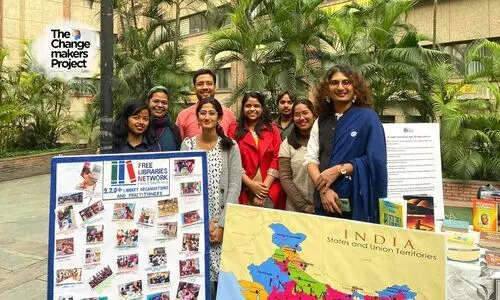More than 180 libraries and 250 practitioners across India have come together under the Free Libraries Network (FLN) that is made up of librarians, activists and educators, who want to provide free, inclusive and accessible libraries, especially in rural areas.
“Libraries can bring about equality in society. And, it is a civilised society where there are libraries that are open to everyone,” Banu Priya, who manages a free library called Reading Spaces in Cuddalore in Tamil Nadu, told Gaon Connection.
It is no more than a small room which can accommodate about 15 people at a time. Children of grade three to six usually come to borrow books that are issued to them for a period of one week after which they have to return them to the library. It was set up in 2020.
Reading Spaces has over 2,000 books in Tamil and English including picture books for younger children. For those children who cannot physically come to the library, Priya takes books from there and visits them at the government schools in and around Cuddalore. She not only distributes the books to the children to read, but also has book reading sessions for them.
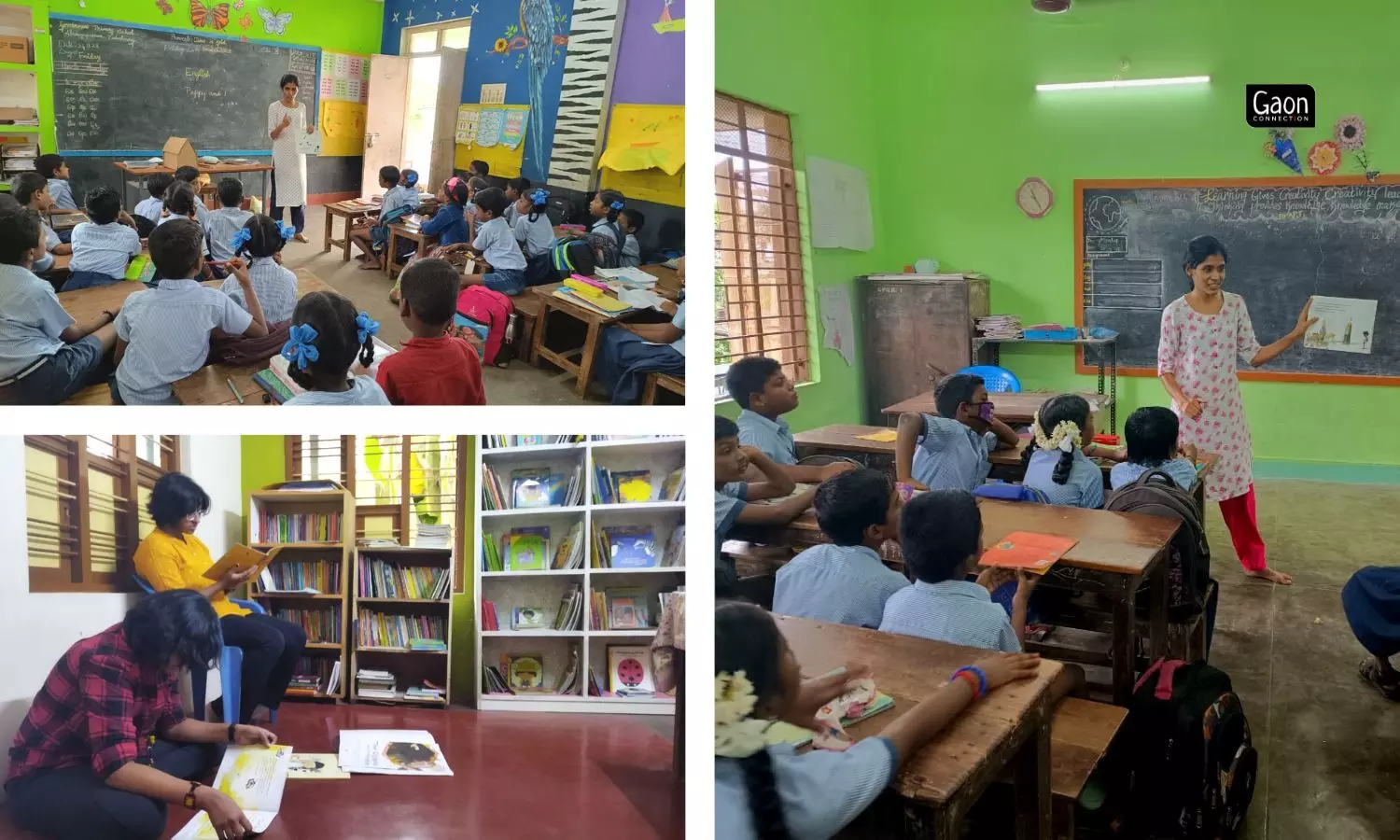
“Libraries can bring about equality in society. And, it is a civilised society where there are libraries that are open to everyone,” said Priya.
“Reading along with children regularly helps inculcate the reading habit in them. I believe it makes them think, understand and look at the world with different eyes,” she said.
Also Read: A School Safety Programme is Using Ballads to Sensitise Students in Jammu & Kashmir
Priya became a part of the Free Libraries Network that is a collective of grassroots organisations, activists and educators who have come together to build, operate and advocate for free libraries across the country. The network of libraries was started in 2022. It works with existing community libraries and its mission is to make free libraries a matter of right.
FLN currently has a network of over 280 people who look after and manage the free libraries that are spread across Odisha, Uttar Pradesh, Rajasthan, Assam, Chhattisgarh, Karnataka, Jharkhand, Kerala, Delhi, Manipur, Jammu and Kashmir, Arunachal Pradesh, Tamil Nadu, Maharashtra and Gujarat. They are trying to make libraries inclusive, accessible and free for all. These libraries run on zero membership fee and deliver excellent services to all.
The Bansa Community Library is one such library that was started in Bansa village of Hardoi district in Uttar Pradesh. This library has 1,700 registered members, both adults and children from the neighbouring villages. It is a part of the Free Libraries Network.
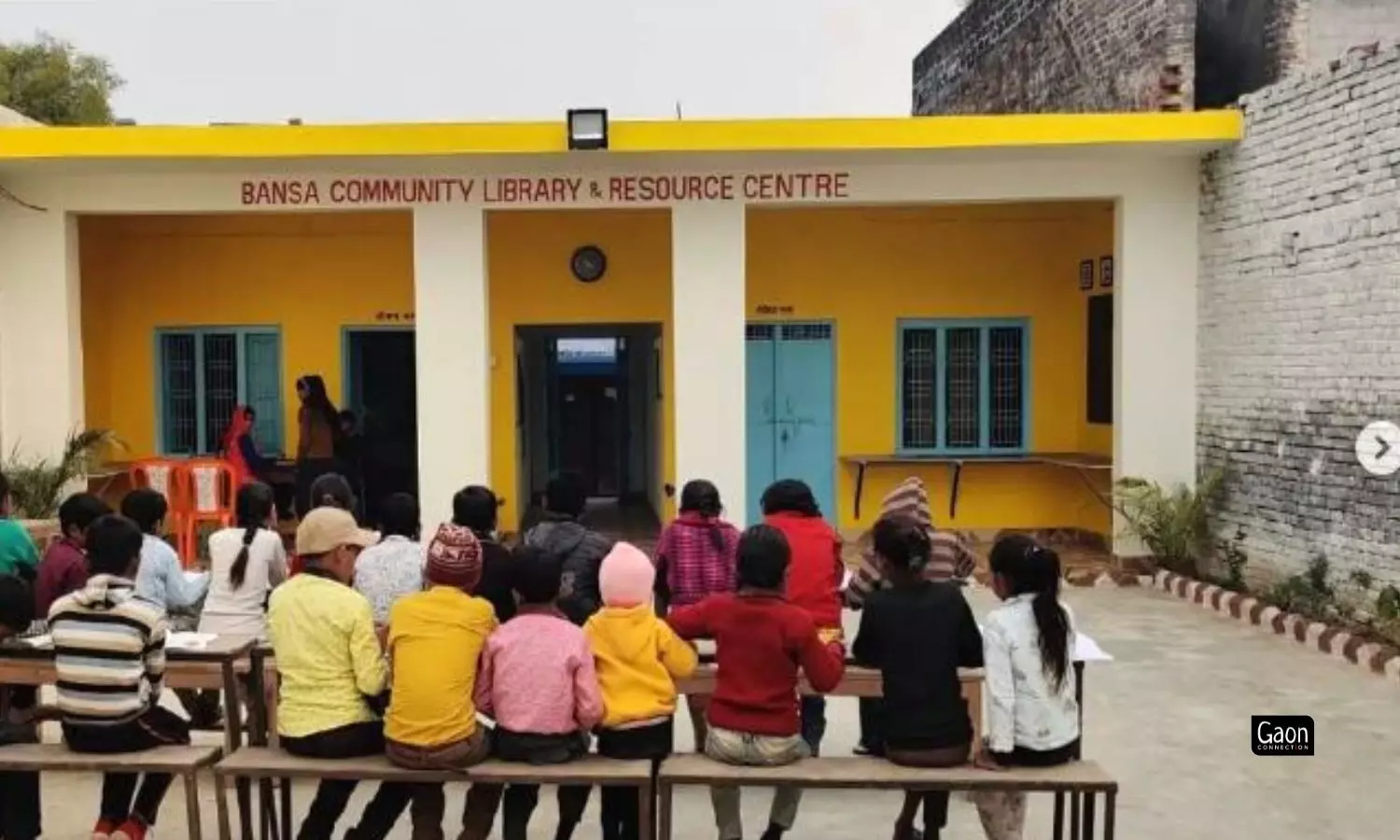
Bansa library has 1,700 registered members, both adults and children from the neighbouring villages.
The library was the dream of 25-year-old Jatin Lalit Singh. He wanted to create a space in Bansa village — his hometown — where people could read for pleasure. The idea of starting a community library in his village came from The Community Library Project (TCLP) in New Delhi, where Jatin Lalit volunteered on weekends, when he was a student of law in Delhi in 2016. TCLP has set up three libraries that are open through the week in Delhi and Gurugram, catering to a membership of over 6,000 children and adults.
Savitribai Phule Library and Resource Centre is also a part of the Free Libraries Network. Amit Gautam, a 30-year-old librarian runs this community library in Sarwagauhan Urfsinghgarh village in Prayagraj, Uttar Pradesh. The library has around 2,000 books including Dalit literature, children’s books, and academic books.
“Free and accessible books for rural children is an elusive dream and through our libraries I want to ensure that rural children get the access to knowledge resources,” Gautam told Gaon Connection.
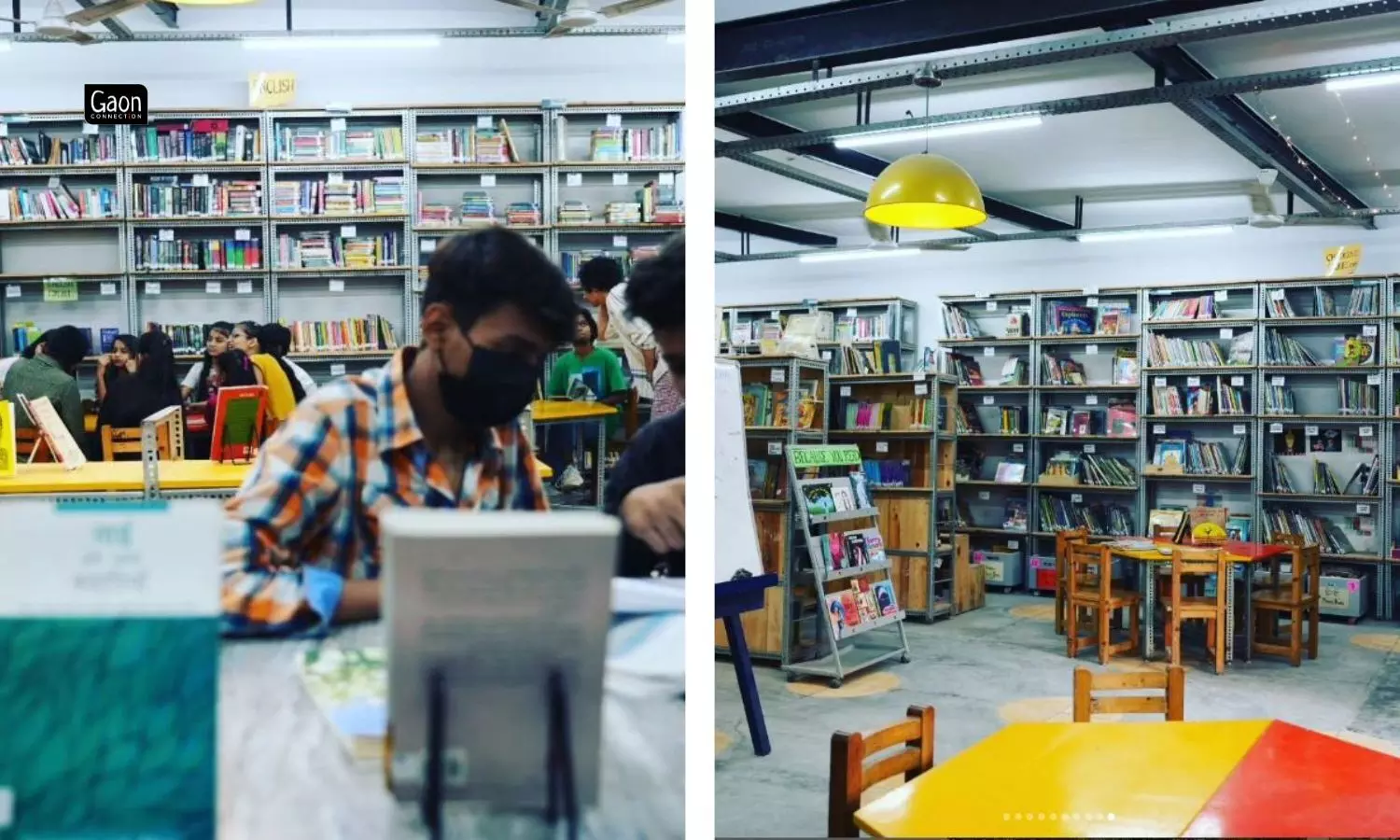
FLN are trying to make libraries inclusive, accessible and free for all. These libraries run on zero membership fee and deliver excellent services to all.
There are around 400 members, mostly children from 5-18 years of age who visit the library, read and borrow books.
Also Read: Here’s How Rural Women are Contributing Towards Ganga Rejuvenation, and Earning a Living Too
Gautam also makes use of the library space to tutor children. “I teach them Maths, English and Science free of cost. They come to the library between 4 pm and 6 pm,” he said. More than 100 children from grades one to eight come there to learn from him.
In Assam, Kitape Katha Koi and Chandraprabha Saikiani Feminist Library and Resource Centre are two libraries being managed by 29-year-old Rituparna Neog. They are a part of the FLN.
Kitape Katha Koi is in Ahatguri village in Jorhat district. The library has around 2,000 books in English, Hindi and Assamese language. The library was started in 2021. On an average around 25-30 children come to the library regularly. The books are issued to the children for a week.
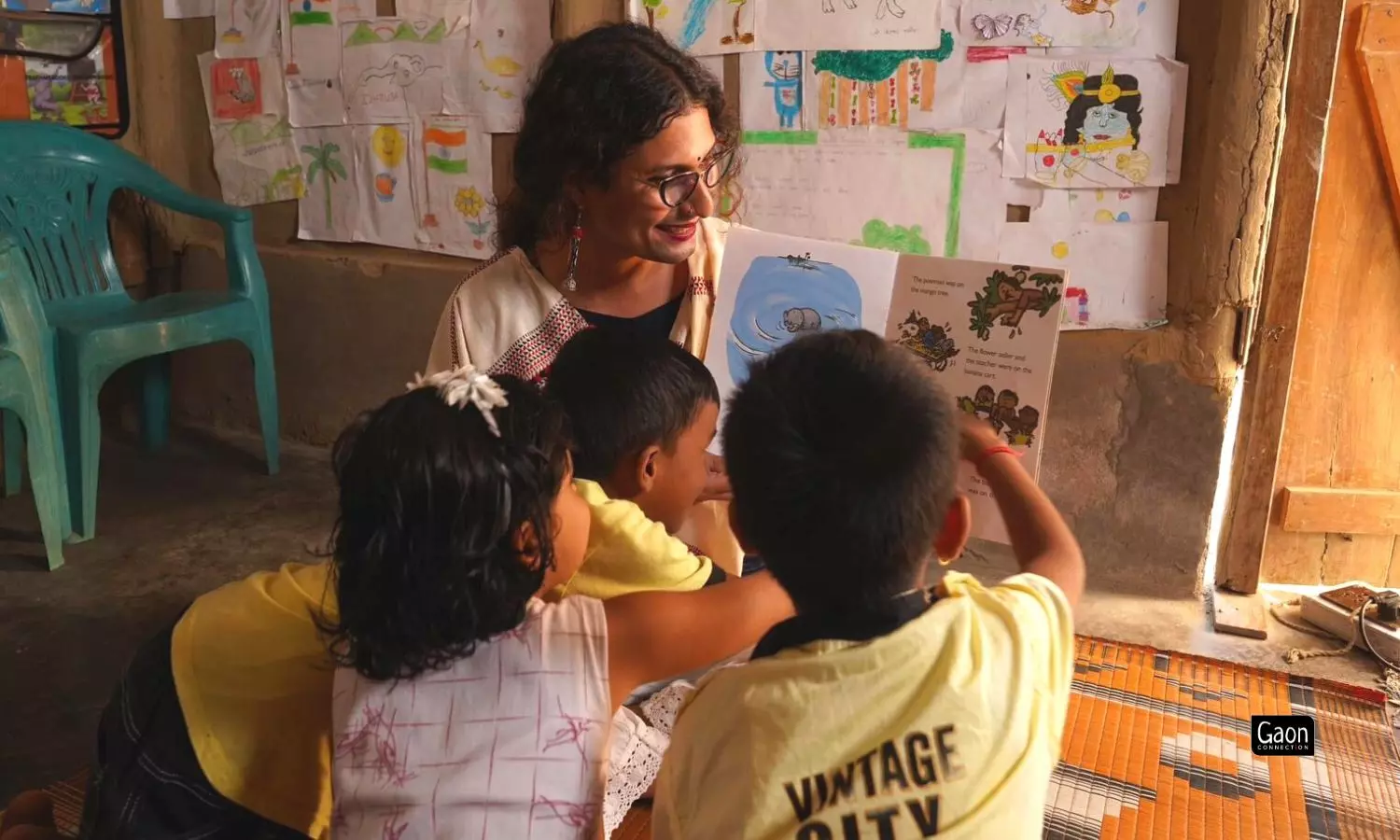
Rituparna Neog with children in the library. The library has around 2,000 books in English, Hindi and Assamese language.
“I always loved reading and had a dream of starting my own library because I wanted to ensure that everyone gets free and equal access to books which is still not the case. I myself have felt the lack of education and knowledge resources. Rural inhabitants are deprived of books that were never a priority. So I thought that if I open libraries I would be able to change that,” Neog said.
The Chandraprabha Saikiani Feminist Library and Resource Centre is in Dibrugarh. It was started earlier this year and also has about 2,000 books. There is a hall and a two room space for the library to accommodate books as well as some people who often come to the library.
“I make sure I visit both the libraries once a week at least. We are a team of four people and we ensure that everything is managed properly,” Neog added.
“Grassroots library workers are doing tremendous work across diverse communities of India. The goal of FLN is to offer peer-support through a solidarity and resource-sharing model. This means that we all pool our resources together, be it books, knowledge, opportunities or connections, so that it is available to any FLN saathi in need,” said Purnima Rao, director of the Free Libraries Network.
Also Read: A village school that began in a cowshed is now an academy for Karbi tribe kids in Assam
The Network advocates with publishers, governments and all stakeholders to think about free access to books in various ways.
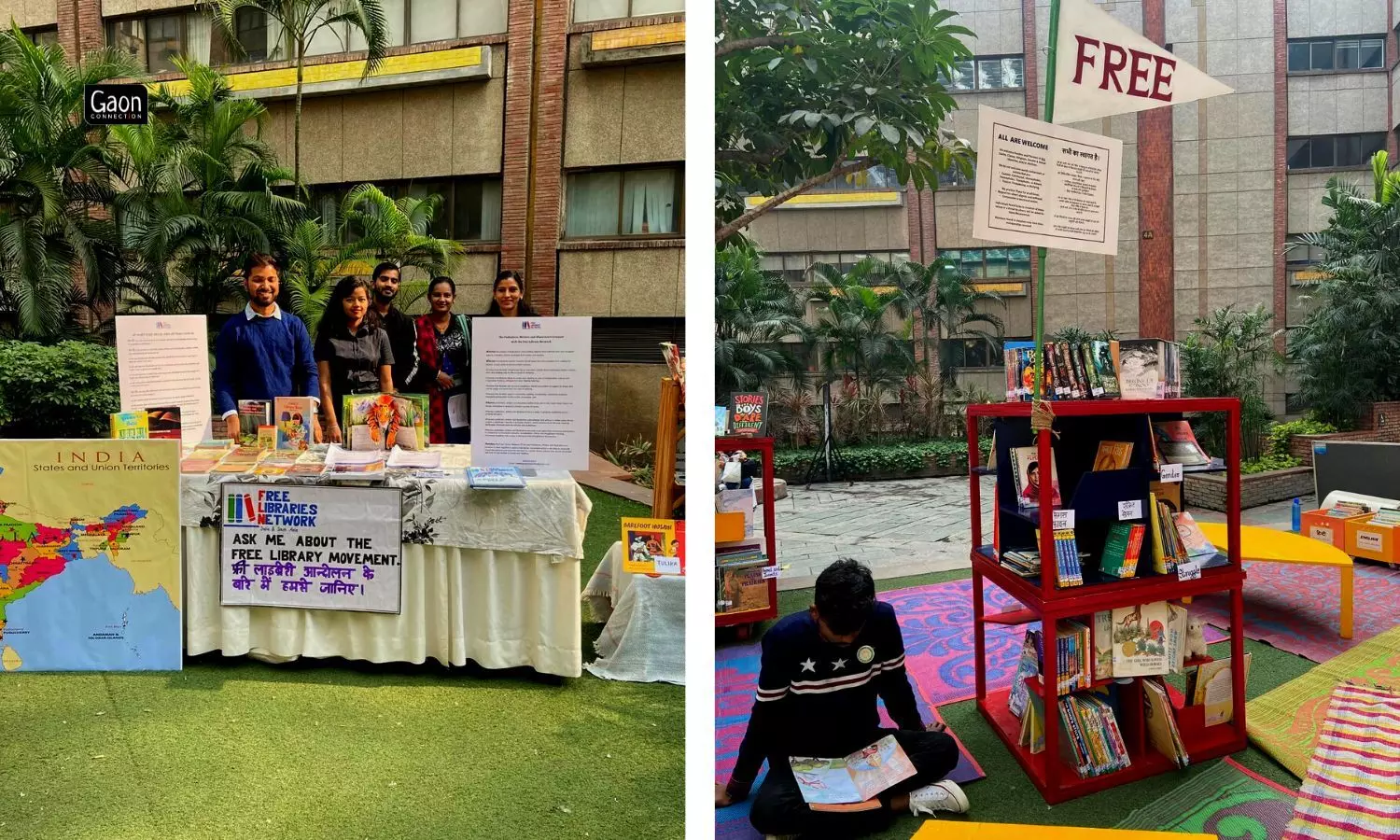
The Network advocates with publishers, governments and all stakeholders to think about free access to books in various ways.
“The bigger goal is to unite and drive the free library movement, which demands free, excellent, autonomous and inclusive libraries for all. FLN pushes for systemic change in the public library system, school library system and publishing so that all of India’s excluded readers can be reached,” 44-year-old Rao told Gaon Connection.
In November, last month, FLN held a programme in Bhopal to engage and interact with librarians and teachers from across the country.
Arbind Tiwary, the headmaster incharge of the Upgraded Middle School in Tangrain village of East Singhbhum district, Jharkhand, travelled to Bhopal to attend the meeting. “They educated us on the importance of opening more free libraries, in village schools as well, because the struggle is real and we have to come together to build such free and equal spaces for everyone,” he told Gaon Connection.

